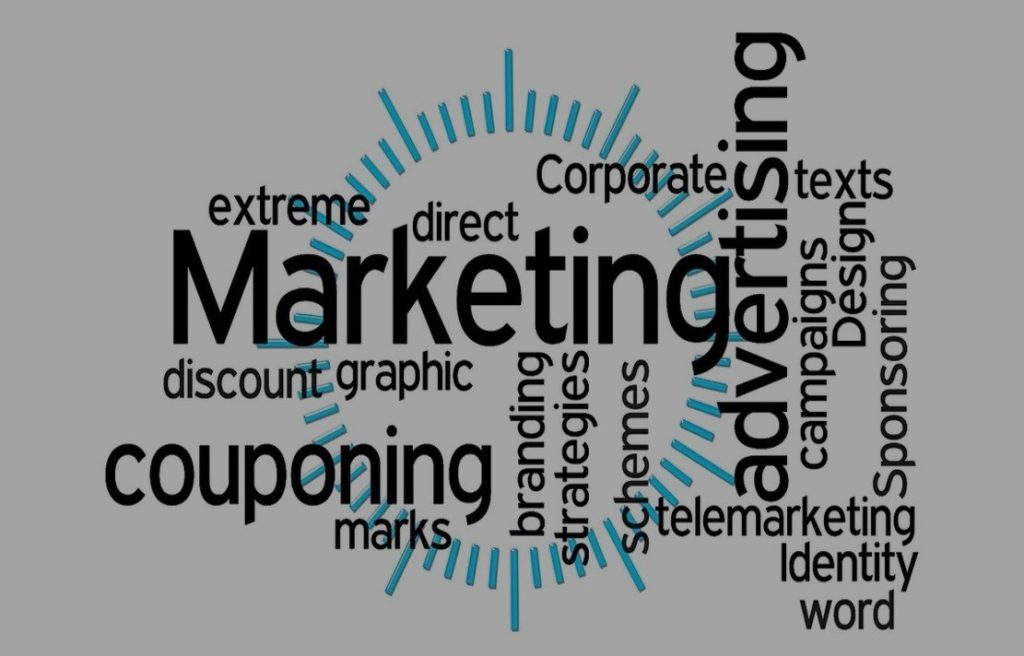Top 10 Content Management System (CMS) Software for 2025
Content Management System (CMS) is imperative for marketers to create digital content – allowing content creators & programmers to design content for the web.

Selecting the right Content Management System (CMS) can be bamboozling for marketers. Nonetheless, it is an absolute imperative for marketers to create digital content or website content – allowing content creators & programmers to design & redesign web templates, articles & possesses an even publishing workflow. Each website has its own CMS software.
A content management system (CMS) is a software application that is employed for creating & modifying digital pieces of content. CMSs typically come in handy for enterprise content management (ECM) as well as web content management (WCM).
Read more on Rethinking CMS: Headless CMS for Improved B2B Omnichannel Selling & Content Management
Content plays a decisive role in branding as well as online reputation management of the brands. In today’s business environment with cutting-edge competition, it’s absolutely impossible to survive without a highly prudent Content Management System (CMS) software.
CMSs are typically used for enterprise content management (ECM) as well as web content management (WCM). An ECM enables collaboration in the workplace by integrating document management, digital asset management, and registers retention functionalities, thereby, providing the end-users with role-based access to the organization’s digital assets.
A WCM, on the other hand, facilitates collaborative website authoring. ECM software includes a WCM publishing functionality; however, ECM webpages typically remain behind the organization’s firewall.
Both the enterprise content management and web content management systems are comprised of: a) a content management application and a content delivery application. The former has a GUI (Graphical User Interface) allowing users to control designing, creation, modification & removal of content from a website without having any knowledge about HTML.
Talking about the basic functionalities of the Content Management System (CMS), the requirements of the smallest of companies & biggest enterprises are quite similar. The basic list of features can quickly multiply as the company size grows.
According to the Mediadriot.com blog, “Web site lead gen campaigns run through the content management system.”
The following are some features that top-performing Content Management Systems must possess in 2020 allowing the companies to leverage perfected features to scale their websites to fuel company growth & quickly adapt to new trends & technologies:
- They should have key attributes for improving the performance of a website including high performance & scalability
- Excellent CMSs easily integrate with other platforms such as CRM systems, ERPs, Social Networks, Mobile applications, etc.
- Top CMs are highly stable under various circumstances
- Top CMSs are easy to use by content editors & site administrators
- They should have an advanced security management
- Top Content Management Systems entail advanced workflow & approval process
- Top-performing Content Management Platforms are integrated with online marketing tools to deliver & optimize real-time, customer-centric marketing across multiple channels
- The best CMSs provide multisite support, allowing users to share the content across multiple sites & manage it from a single point
- It is good to have CMSs with multilingual features such as Translation Management, Side-by-Side Translation Comparison, and Automatic Time Conversion
- Highly reputable CMSs provide support for Mobile Devices, Facilitate Training Services & provide 24/7 responsive support
- Best performing CMSs are easily debugged, can be easily upgraded & the upgraded path can be cleared & they also have a solid & highly reputable vendor support system
Brands have the potential to become influencers within their niches & connect with the customers at every stage of their buying cycles by offering them quality products & services.
The blog covers the best Content Management System (CMS) Software, designed for different needs & budgets of the marketers to scale-up their 2025 branding & marketing game:
1. WordPress:
WordPress is arguably the most popular CM. Launched in 2003, the platform has come a long way in driving internet traffic.
According to hostingtribunal.com, WordPress powers 35% of the internet in 2025.
The platform is based on MySQL & PHP & provides an array of tools for creating a website or blog with written content, images, videos & much more.
Marketers can install third-party themes to personalize their websites. The business plan costs $25 a month. Given that the platform provides the marketers with unlimited storage space, a theme store & a custom domain, the investment is quite reasonable for the marketers.
2. Weebly:
Weebly is an easy-to-use content management system, that lets marketers set a simple website within minutes. Features and media can be added to the website easily using the drag-&-drop functionality. Marketers can also swiftly remove anything they want.
The most basic plan costs around $12 a month. Marketers get unlimited storage, besides a domain name & Google Ads credit.
3. Magnolia:
Next, up on our list of top 10 content management system (CMS) is the business-oriented CMS called Magnolia. The CMS stresses security, is java-based & tailored to suit the business requirements of the brands.
This CMS is specifically useful for the businesses who wish their website to have a versatile architecture. It integrates areas such as e-commerce, analytics, marketing automation, social media, CRM & ERP.
The platform also makes your website resistant to cyber-attacks by separating the public & private elements of your website. The public & private elements of the website are separate that makes the website resistant to attacks. Prices are tailored as per the business requirements.
4. Joomla:
Joomla is a boon for website creators and qualifies on our list of the top 10 content management system software. It is a unique open-source multilingual CMS platform that allows website creators to create apps with multilingual features & multi-user permission levels. Joomla is created specifically for building mobile-friendly, secure & fully extensible websites. It allows users to create apps with multilingual features.
Applications & websites created on the platform are mobile-friendly, secure & fully extensive. Joomla allows users to create apps with multi-user permission levels & multilingual features.
The platform is preferred by users with large global impact & facilitates Document Indexing, Full-Text Search, Text Editor, Website Management & Version Control.
Running a website on Joomla will cost you an average of $200 to $500 for 12 months registration.
5. Drupal:
Yet another important Content Management System (CMS) Software for marketers, developers as well as digital agencies across the globe in 2025 s Drupal.
Being an open source Content Management Platform, Drupal is for web creators wishing to achieve high-class customer experience at multiple channels. Drupal can be customized for use by different types of professionals & agencies as per their needs. Be they developers, marketing agencies, management companies or other professionals Drupal simplifies the task of content distribution & presentation for them, providing each with adequate space. Industries such as healthcare, tourism, High-tech, e-commerce, nonprofit organizations, higher education websites, government websites & even the media houses can leverage Drupal solutions after customization.
The installation of this CMS structures audio content, full-text search, E-forms, Text Editor, Video Content & Website Management.
Implementing a standard Drupal project ranges from $20,000 to $40,000 and higher while the maintenance costs vary from $500 to $1000 or higher.
When using Drupal, costs vary according to the type of website built & as per the features included.
6. Wix:
Up-next on the list of the Top 10 Content Management System (CMS) Software is the cloud-based web development platform called Wix which facilitates creating HTML5 & mobile-optimized websites. This is a cloud-based platform meant for mobile-friendly websites & has a wide array of plugins available at reasonably priced business plans.
Pricing varies from the US $ 5 per month for Wix Connect Domain to the US $ 13 per month for Wix Combo & an unlimited subscription at around $17 per month.
7. Kentico:
Kentico is an integrated Content Management Software (CMS) meant for eCommerce & online marketing platform. It allows marketers to optimize the digital experience across multiple channels. The platform is powered by .NET MVC technology & is incredibly helpful for all the types of online businesses. Many of the trusted platforms across the globe have awarded Kentico.
Kentico has several unique Content Management Features including Customized Templates, Document Indexing, E-Forms, Full-Text Search, and Website & SEO Management & Text Editor.
Kentico happens to be the only fully integrated ASP.NET CMS, E-commerce, and Online Marketing platform that allows marketers to create cutting-edge websites & optimize the digital customers’ experiences. It helps marketers create seamless multi-channel experiences. It saves time & resources for marketers to accomplish more. The price starts at $7999.00 per year.
8. MODX:
MODX is another unique Content Management System (CMS) that qualifies on our list of top 10 Content Management System (CMS) Software.
This cloud hosting & free CMS platform has several unique content management features including Audio Content, E-forms, Full Text Search, Image Editor, SEO Management, Text Editor, Version Control & Website Management.
The company backs a Web Application Framework. MODX Revolution is known to be the world’s fastest, most secure, flexible & scalable amongst the open-source CMSs.
The platform allows marketers to gain complete control over their creative vision & deliver phenomenal experiences to the end-users. The websites using this platform are driven with unparalleled performance & security. Besides, this open source Content Management System (CMS) is also known for being flexible, scalable, speedy & secure. The basic pricing starts at $19 a month.
9. Bynder:
Bynder is a Content Management System (CMS) that is great for publishing online content. The marketing platform allows brands to create content online & is a great collaboration tool for creating sharable style guides that are ideal for marketing.
Being a CMS platform that provides a plethora of high-quality workflows to help brand managers, marketers & editors produce & approve new marketing content, the platform qualifies as a sharable style guide for creating a consistent content strategy that improves your branding strategy. The basic pricing started at $450 per month & can cost you much more if you subscribe for additional features.
The software simplifies many mundane & time-consuming tasks.
10. dotCMS:
dotCMS is a CMS that works on Java. This CMS is guided by infrastructure philosophy allowing marketers to create content & manage them in an integrated manner. The platform can be easily used by both the marketers as well as the developers. dotCMS provides a multilingual content management platform, a secure workflow, drag & drop functionality & an array of opportunities for customization.
The platform has unique features such as customizable templates, document indexing, E-forms, Full Text Search, Image Editor, SEO Management, Version Control, Text Editor & Website Management. The pricing can be requested from the vendor.
Wrapping Things Up
There is no dearth of Content Management Systems in the market. Before deciding for the one your business needs to go along with, marketers must set their priorities & needs straight.
They can introspect about the vulnerability indexes for their pieces of content, must review their budget & security requirements & the number of people that are going to need access. Also, the list of extra plugins or extensions required must be thought of.
An ideal Content Management System should be user-friendly, easy to access, abide by the best SEO practices, easy to integrate with the third-party plugins & marketing tools & should be reasonably priced.
Competitive benchmarking can help when deciding on a CMS that best suits your business requirements.
Remember before you say yes to any vendor that a CMS can make or mar your website traffic & overall user experience. So, choose wisely & don’t forget to scroll-over the list of the top 10 Content Management System (CMS) Software.
Valasys Media provides best-in-class B2B services such as lead generation, account-based marketing, lead nurturing, event promotion services, list building services & content syndication services to help B2B decision-makers optimize their core business bottom lines.



